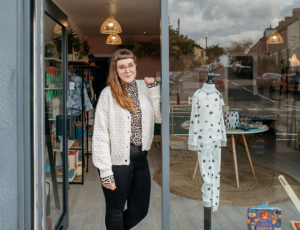
Small Business Britain reveals lessons on surviving a crisis for small businesses in a new report.
Embracing digital, diversifying products and services and accessing emergency finance – particularly Bounce Back Loans – are the top ways small firms have survived the Covid-19 crisis so far according to a new report from Small Business Britain that offers firms advice on how to be resilient in a crisis.
The UK’s 5.8 million small businesses continue to face severe challenges over the winter. The report’s research supported by TSB found over a third (37%) of small businesses have seen their revenues drop by more than half due to Covid-19. Despite this, over three quarters think their business will survive. The majority among this (56%) are feeling the weight of the obstacles, but are still pressing on.
The ‘How to Be Resilient’ report, which sets out to understand the key factors contributing to business survival during the pandemic and share lessons for the future, found that over half (53%) of small firms accessed emergency government financial support to survive. Half (52%) also said they got through by introducing new technology. Meanwhile, 44% added new revenue streams.
Digital has proven to be a key tool for survival as well as future growth; 59% of small businesses are increasing digital skills.
Enhanced digital capability was found to not only aid business operations, but to also boost confidence. Over 70% of business owners felt the digital changes they made would enhance their business over the longer-term.
Commenting is Michelle Ovens CBE, founder of Small Business Britain. “Finding a way to press on successfully is key to ensuring small business survival and enabling them to get past the period of crisis and into a more stable period of growth.
“The crisis has been devastating for many firms. Those that have survived have used digital and diversification to their advantage, as well as drawing upon financial support alongside other kinds of help from communities, peers, friends and family.
“While it is an experience no one would want to repeat, there are many lessons to be learned from this crisis. Businesses fearing for the future should remember it is not too late to adapt or to reach out. There is much that can be done, even in the bleakest of situations.”
A third of firms cited Bounce Bank Loans as a critical lifeline to continue.
A quarter used it to pay urgent office costs, with 18% using it to pay staff costs. Thirty per cent of businesses saved the cash as a buffer for future needs. Over a fifth (22%) invested the finance into new growth opportunities.
Ovens continues; “Whilst debt is not the ideal solution for many businesses, this provided a lifeline for some; enabling them to continue when there was little other option. The extension of the Bounce Back loan scheme into 2021 has been welcomed.
“However, small businesses are clear that there also needs to be an extension to the amount allowed and the period of payback to reflect that the crisis has continued far longer than was envisaged when the loans were first announced.”
Also commenting is Adeel Hyder, business banking propositions director at TSB Bank, which supported the report.
“The pandemic delivered a shock to the economy like no other in living memory. The speed and scale of the Government’s response have been critical.
“As this report bears out, for most small businesses, access to government support schemes like business rates relief, the furlough scheme and the Bounce Back Loan Scheme have been an important determinant of survival. As well as keeping a forensic eye on cash flow, riding new digital trends will be key to having a successful business in 2021.”
For a full copy of the report, please click here. Click here for further information on Small Business Britain.












